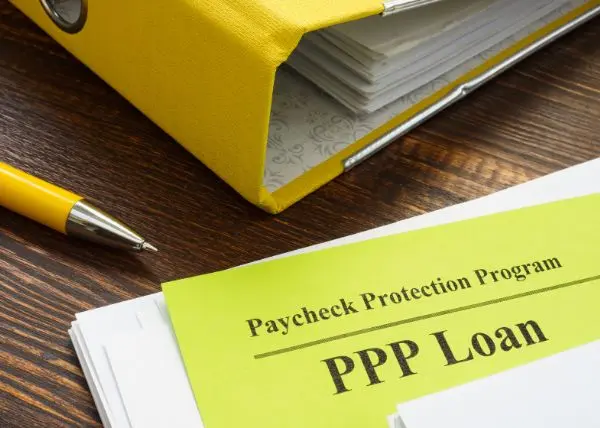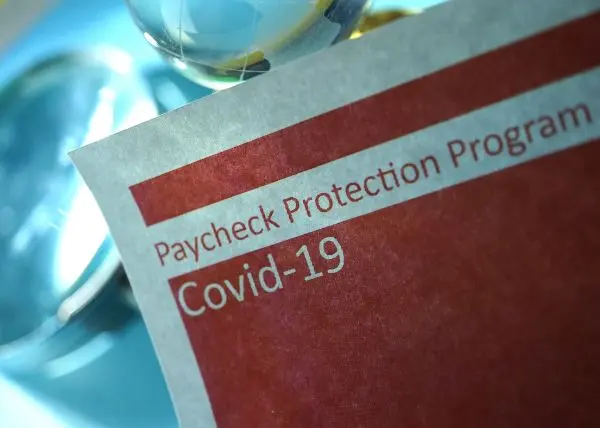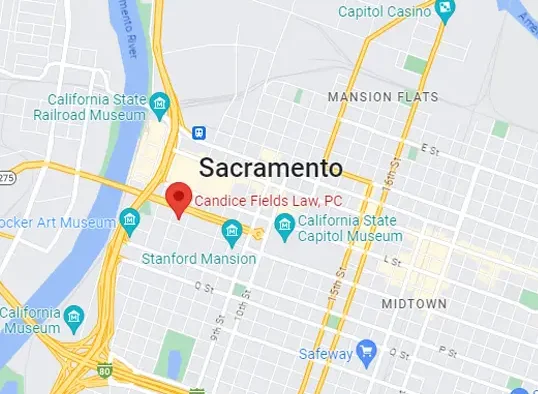About The U.S. Crackdown on Ineligible Industries for PPP Loans

In the aftermath of the COVID-19 pandemic, the U.S. government implemented several financial aid programs, such as the Paycheck Protection Program (PPP), to support struggling businesses. However, not all industries qualify for such aid, and the federal government has intensified its efforts to prevent and penalize fraud among ineligible industries. Here's an in-depth look at how federal agencies are enforcing regulations and pursuing legal actions against ineligible industries that attempt to exploit small business loan programs.
What Industries are Ineligible for Small Business Loans? An Urgent Need for Clarity and Reform

We often work with clients grappling with complex regulatory frameworks, particularly concerning eligibility for small business loans under programs like the Paycheck Protection Program (PPP). Amidst the COVID-19 pandemic, many businesses in traditionally ineligible industries applied for and received PPP loans, often due to misunderstandings or ambiguities in the eligibility criteria.
Unfortunately, these businesses now face potential legal repercussions as federal agencies scrutinize these loans and pursue actions against those they perceive as having misused the funds. This underscores the need for a clear and updated understanding of which industries are considered ineligible for such aid. Here’s a closer look at some of these industries and the pressing need for policy reform:
1. Investment Firms and Venture Capital Companies
Traditionally excluded for engaging in speculative activities, small investment firms and venture capitalists are critical for innovation, particularly in emerging sectors. The blanket exclusion doesn't take into account the diverse nature of these businesses.
2. Gambling and Gaming Establishments
These entities are ineligible due to the potential for funds to be used for gambling activities. However, this can unfairly impact small businesses like restaurants or bars with minor gaming operations as a smaller part of their overall business model.
3. Real Estate Investment Firms
Such firms are usually ineligible because their revenue comes from passive income like rent or property value appreciation. This policy overlooks small-scale real estate investors who actively manage properties and contribute significantly to their communities.
4. Certain Types of Lenders
Mainly banks and finance companies, these businesses are excluded to prevent self-financing. However, smaller community-focused lenders could benefit from such support to aid local businesses.
5. Pyramid Sales Plans
Businesses operating under pyramid or multi-level marketing structures are ineligible, though this fails to distinguish between predatory schemes and legitimate MLM businesses that offer real employment opportunities.
6. Private Clubs and Businesses Limiting Membership
Such businesses are ineligible if they restrict access for reasons other than capacity. This can affect small, community-based clubs that aren’t necessarily exclusive but operate based on a membership model.
7. Government-owned Entities
Entities owned by the government are excluded, complicating situations where public-private partnerships are vital, especially in sectors like healthcare or education.
8. The Adult Entertainment Industry
Professionals and businesses in this sector are often unfairly excluded despite operating legitimate and legal services. This overlooks the economic contributions and legitimate business needs of those within the adult entertainment industry.
9. Lobbyists
Due to concerns over using government funds to influence legislation, lobbyists and lobbying firms are generally ineligible. This affects small-scale lobbyists, who are crucial for advocating for various causes and industries.
How is the Federal Government Cracking Down on Ineligible Industry Owners Who Received PPP Loans?
The federal government, particularly through agencies like the Small Business Administration (SBA) and the Department of Justice (DOJ), is taking several approaches to address the issue of ineligible businesses that received loans under programs like the Paycheck Protection Program (PPP). Here are some of the main strategies being employed to enforce regulations and recover funds:
1. Audits and Reviews
The SBA conducts targeted audits and reviews of loan recipients to verify compliance with the PPP's eligibility requirements. Businesses in industries traditionally ineligible for these loans are being scrutinized to ensure they did not misrepresent their eligibility in the application process. These audits focus on the accuracy of information provided concerning the nature of the business, the number of employees, and the use of the loan funds.
2. Investigations by the DOJ
The DOJ is actively investigating cases of fraud related to the PPP loans. This includes businesses from ineligible industries that may have obtained loans by providing false information. The DOJ uses tips, whistleblower reports, and data analysis to identify potential fraud cases and pursue legal action against the offenders.
3. Legal Actions and Prosecutions
Once a fraud case is established, legal actions are taken, including civil lawsuits under the False Claims Act or criminal prosecutions. The penalties can be severe, including significant fines, repayment of the misappropriated funds with interest, and in some cases, imprisonment for those found guilty of fraud.
4. Publicizing Enforcement Actions
The federal government is concerted effort to publicize successful enforcement cases. By showcasing these examples, they aim to deter other businesses from attempting to defraud government programs. This approach also serves to reassure the public that the government is taking decisive actions to protect taxpayer money and ensure the integrity of its financial aid programs.
5. Collaboration with Financial Institutions
The government is collaborating with banks and other financial institutions that facilitated the loan distributions. These institutions are often the first line of defense against fraud and are in a position to identify suspicious applications before they are approved. By strengthening these partnerships, the government can enhance the effectiveness of its screening and enforcement efforts.
6. Enhanced Data Analytics
Utilizing advanced data analytics, the government can cross-reference PPP loan applications with other federal and state databases to flag inconsistencies and signs of fraud. This technology-driven approach helps to identify ineligible businesses that might have slipped through initial checks.
Penalties for Being Convicted of PPP Loan Fraud for Ineligible Businesses
The repercussions of being convicted for PPP loan fraud can be severe and multifaceted for business owners in industries deemed ineligible for the Paycheck Protection Program (PPP) loans. The federal government is pursuing criminal charges and imposing stiff civil penalties, often requiring repayment far exceeding the loan's original amount. Here’s a detailed look at the potential penalties these business owners face:
1. Repayment with Interest and Penalties
Business owners convicted of fraudulently obtaining PPP loans are required to repay the full amount of the loan. Additionally, they may face penalties and interest, which can significantly increase the total amount owed. The government calculates these fines based on the severity and intent of the fraudulent activity, often leading to financial liabilities that dwarf the original loan amount.
2. Civil Penalties Under the False Claims Act (FCA)
The FCA is one of the primary tools the federal government uses to combat PPP loan fraud. This act allows the government to impose civil penalties for knowingly submitting false claims to obtain federal funds. The penalties can include treble (triple) damages, meaning the government can demand up to three times the amount of the loan in damages, plus additional fines ranging from $11,665 to $23,331 per false claim as of adjustments made in 2021.
3. Criminal Charges and Sentencing
In cases of particularly egregious fraud, business owners might face criminal charges, including fraud, theft, or conspiracy, depending on the specifics of the case. Convictions can result in substantial fines and prison sentences, further compounding the accused's legal and financial troubles.
4. Asset Forfeiture
In some cases, the government may also seek asset forfeiture as part of the criminal proceedings. This means that the government can seize personal and business assets obtained through fraudulent activities. This is particularly likely if the assets were purchased with funds from the fraudulent loan.
5. Reputational Damage
Beyond financial and legal penalties, being involved in a PPP loan fraud case can cause significant reputational harm. This can affect the business owner’s ability to secure future financing, attract customers, and maintain business relationships. The long-term impact on a business’s reputation can sometimes be more damaging than the immediate legal consequences.
6. Additional Financial Scrutiny and Restrictions
Businesses and owners convicted of PPP loan fraud may be subject to increased scrutiny in all future dealings with federal financial programs. They may face restrictions on their ability to participate in other government aid programs, which could limit growth opportunities and financial recovery.
How Candice Fields Law Can Help: Defending Against Overzealous Federal Actions
At Candice Fields Law, we understand business owners' immense pressure and anxiety when confronted with accusations of PPP loan fraud, especially those from industries unfairly labeled as ineligible. We firmly believe that many of these prosecutions amount to an overreach by federal authorities, who too often treat well-meaning business owners as scapegoats for systemic issues. We stand ready to challenge what we see as governmental bullying, defending our clients aggressively against what can only be described as punitive actions against ordinary people trying to navigate extraordinary times.
Unwavering Advocacy in Your Defense
We passionately believe that no one should be made an example of by the government without a vigorous defense. Our legal team is committed to providing unwavering advocacy, ensuring that your side of the story is heard and your rights are protected throughout the legal process. We understand the nuances of federal loan programs and the complexities of the laws surrounding them. Our approach is to dissect the government's case, identify oversteps and weaknesses, and use these to your advantage.
Strategic Legal Representation
A strategic, assertive approach characterizes our representation. We meticulously analyze every piece of evidence, challenge every allegation, and confront every claim made by federal prosecutors. Our goal is to defend and go on the offensive when necessary, pushing back against broad accusations and demanding accountability from those who wield their power to intimidate and threaten business owners.
Negotiating with Federal Agencies
Negotiating with federal agencies is an integral part of our defense strategy. We aim to mitigate potential damages and penalties by engaging directly with those in charge. Our firm has a track record of negotiating favorable outcomes, reducing penalties, and sometimes getting charges dropped entirely. We believe in fighting for a fair resolution that acknowledges the real-world complexities faced by business owners rather than accepting the harsh penalties often pursued by federal agencies.
Protecting Your Business and Reputation
Potential reputational damage from federal fraud accusations can be devastating. We are acutely aware of what is at stake—not just your freedom but the survival of your business and the well-being of your employees and families. Candice Fields Law acts swiftly to manage public perceptions, safeguarding your reputation as we navigate through your defense.
Comprehensive Support and Guidance
Throughout the legal process, we ensure you are not alone. Our team provides comprehensive support and guidance, helping you understand every step and make informed decisions about your defense. We are here to answer your questions, address your concerns, and update you on all developments in your case.
Ready to Stand Up Against Federal Overreach?
Don't let federal intimidation tactics determine your future. If you're facing allegations of PPP loan fraud or feel unjustly targeted by government actions, contact Candice Fields Law today. Our team is dedicated to defending your rights aggressively, ensuring you receive the robust representation you deserve. Take the first step towards fighting back—reach out for a consultation and let us help you navigate these challenging times with confidence.





